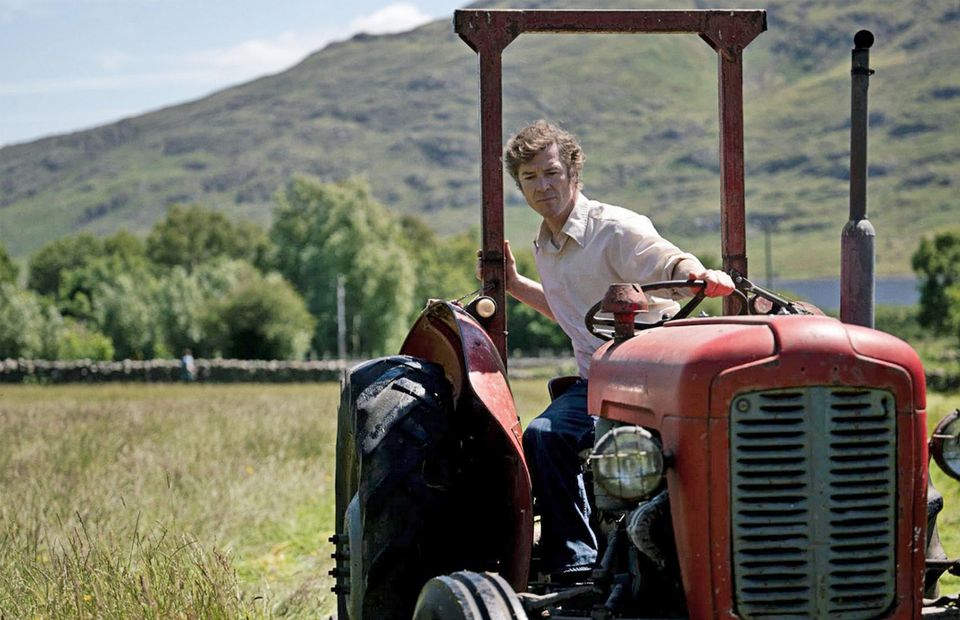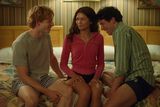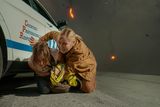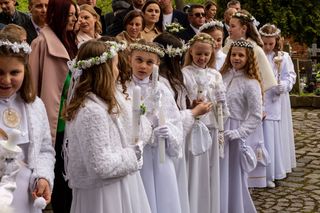That They May Face the Rising Sun review: ‘Barry Ward is the fulcrum of this quietly magnificent film experience’
Now showing; Cert 12A, 5 stars
'That They May Face The Rising Sun' - official trailer
In a lakeside farmhouse tucked away in the west of Ireland, Joe (Barry Ward) and Kate (Anna Bederke) live a quiet bucolic idyll. Their day-to-day life of chores and creativity (Joe writes, while Kate has an art studio) is interrupted only by callers to their home, all dropping by for a bit of gossip.
We’re in the late 1970s/early 1980s, a place and time before telecommunications had reached every corner of this island. People were indeed prone to relieving tedium by dropping by neighbours and friends unannounced, often letting themselves in before leaving just as unceremoniously. You kept your best material for the kitchen table, and if you had none, you let the small talk swell into something.
“No news,” the character Jamesie (a beautifully unschooled Phillip Dolan) says to Joe and Kate on arrival. “Came looking for news. The cuckoo’s back. That’s my news.” Larks trill in the background as another visitor, Joe’s uncle the Shah (John Olohan), confides that the passing of friends has him contemplating early retirement. “The rain comes down, the sun shines, the grass grows, children grow old and die. That’s the holy all of it. We know it full well but can’t even whisper it.”
This is the world of John McGahern, the author, farmer and luminary from Co Leitrim whose myth has only grown since his death in 2006. Published in 2002, That They May Face the Rising Sun is regarded by many as his most enigmatic work, a novel that manages to trade off its own unique pastoral rhythm. Light on plot but filled with a surreptitious potency, it is not the most obvious item from the McGahern canon to adapt for the big screen. But then again, Pat Collins tends not to operate within the realm of the obvious.
Barry Ward in 'That They May Face the Rising Sun'
Over the past 25 years, the west Cork filmmaker has become a genre unto himself with nonfiction releases – both documentary and hybrid – that somehow reach further inside their subjects. Often, they explore some secret history found on this island.
Song of Granite (2017) chronicled the life of sean-nós doyen Joe Heaney. Connemara cartographer Tim Robinson and US folklorist Henry Glassie are also previous subjects. Long before work commenced on adapting McGahern's prose, Collins had made what remains the definitive documentary profile of the writer himself, 2005’s John McGahern: A Private World.
It says something of Collins’s skill not only as a director but as a screenwriter (in collaboration with Éamon Little) that this first foray into feature-length drama feels linked to his oeuvre rather than some kind of generic departure.
Rising Sun bears all the trademarks of Collins’s inimitable style – the sense of spaciousness, the patience to linger with a subject just that second longer to see rarer colours revealed, the invitation to natural sounds unadulterated by man (a subject of his breakout 2012 film, Silence).
The local bachelor represents another side to this picture-perfect valley
As the seasons turn, the junctures of life come and go. The blissful, sun-kissed toil of harvest time. Christmas with its own set of mercies and concerns. Marriage in the community is quickly followed by a funeral. A piano score by Irene and Linda Buckley envelops these exquisite rhythms with raindrop delicacy.
Pathos arrives in the form of Patrick (a turn by Lalor Roddy that is surely among the best we will see in this already extraordinary year for Irish actors). In that dark-light face and bent posture, the local bachelor represents another side to this picture-perfect valley – regret, loneliness, disaffection, and wisdom hard-won.
Another farmhand, Bill (Brendan Conroy) is socially “battered” by being born out of wedlock. McGahern, no more than Collins, had his disillusionments with his homeland.
Subtle, sensitive, and dynamically understated throughout, Barry Ward is the fulcrum of this quietly magnificent film experience. Ward is an actor who has now shown enough versatility and craft that an international breakout feels only a matter of time. He leads a cast of similarly pitch-perfect naturalism.
Nature writer Robert Macfarlane says books don’t necessarily need plots, they can have patterns instead. Aside from the awards and acclaim this film has already received, Rising Sun’s achievement is to show us this can also be true of cinema.
Five stars
Join the Irish Independent WhatsApp channel
Stay up to date with all the latest news















